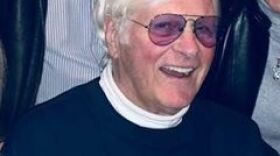Immerse yourself in Paris with Colette. You'll fall in love.
Colette
Grade: A-
Director: Wash Westmoreland (The Last of Robin hood)
Screenplay: Westmoreland, Richard Glatzer (Still Alice), Rebecca Lenkiewicz (Disobedience)
Cast: Keira Knightley (Anna Karenina), Dominic West (Tomb Raider)
Rating: R
Runtime: 1 hr 51 min
By: John DeSando
“You’ve invented a type.” Mathilde de Morny (Denise Gough) to Colette (Keira Knightly)
At the turn of the 20th century, no female French writer was better regarded than Colette, nee Sidonie-Gabrielle Colette. Keira Knightley, in the film Colette, channels the icon and feminist in a cinematic docudrama anyone interested in culture and history will enjoy. Yes, young Parisian girls eventually looked like Colette’s heroine, Claudine.
It took a while for Colette to become known as a singular writer because for the longest time the world thought the provocative Claudine novels were written by her husband, Willy (Dominic West). It was not necessarily a matter of slavery because the Victorian era was notoriously hostile to risqué female writers, this one not Jane Austen-like, to be sure.
Colette in this rendition is quite happy with the arrangement, for the country girl enjoys the Parisian culture while the couple grows rich on her novels. Nor is Willy portrayed as a tyrant, just a practical publisher/writer who knows a good thing when it is his wife. However, when early on she says, “I can read you like the top line at an optometrist’s office,” one can’t help but think how witty she is and how much in trouble he will be.
As Colette begins to show interest in other women, the film progresses into the modern era, where she becomes liberated (as a philanderer, Willy cannot complain), enjoys acting, and eventually divorces Willy to write more under her real name.
Meanwhile the film’s audience is delighted to see the era recreated in Paris and its countryside and the women splendid in their corseted finery. Co-writer/director Wash Westmoreland takes care to let us visually enjoy the decorations while he really is interested in showing how Colette breaks through her glass ceiling with Westmoreland’s low-key storytelling that makes you think you are there.
Living with Willy and Colette in this film will send the audience to her works and her Paris, as much a beneficiary of her talent as her pop-cultural writing magnificence.
John DeSando, a Los Angeles Press Club first-place winner for National Entertainment Journalism, hosts WCBE’s It’s Movie Time and co-hosts Cinema Classics. Contact him at JDeSando@Columbus.rr.com




